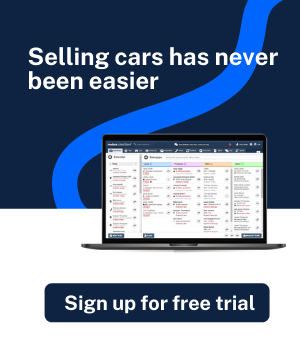
What happens when car dealerships use multiple systems to manage data?
The answer is simple – chaos! Unfortunately, most dealerships still make use of several systems to store and manage data, which leads to various issues like errors, delays, or missing information. Using API isn’t a feasible solution at all times, while manually handling data is just a no-no.
What are the issues faced due to multiple data management systems?
1. Duplication
Duplicate data entry wastes much time and effort. It often results in keystroke errors too. Humans are bound to make mistakes, so while operating a bunch of data management systems with their own rules and methods of organizing, duplicated work is inevitable.
The average data entry errors are between 3-5%. Imagine the same record across many different systems receiving a typo in one portion, and not in the next. It becomes nearly impossible to match two records.
2. No real time data
Thanks to modern technology and software, data is automatically updated. However, if data isn’t refreshed in real time or can’t be synced, reports might be outdated as soon as they are run. It leads to miscommunication and business-wide oversight.
3. Affects productivity
It is difficult to find complete information in a few minutes, especially if you have to look across various systems. Moreover, running multiple systems at once can slow computer bandwidth down, making completing certain tasks time-consuming and frustrating.
4. Lack of accuracy and transparency
Information and data shared across fragmented systems, many departments, and updated by different people creates communication blocks, especially if not everybody has access to each individual system. What if different systems have several variations of the same data? Which one is correct?
5. Expensive
Using multiple data management systems comes at a cost. The implementation, integration and upkeep of numerous applications can quickly eat into your budget.
How to improve Dealership Data Management?
One of the best ways to manage data and ensure your business runs smoothly is to use a customer relationship management (automotive CRM) system. These systems can efficiently consolidate data and store it properly, so you can access it whenever needed. It is also cost-effective as compared to using multiple systems.
1. Improve data storage
An automotive CRM software can store and organize data, which makes it convenient to share with various members of the team. Creating and distributing information about current clients or new ones is one of the benefits of implementing a CRM system. By collecting data in one place, businesses can share data across locations and departments. For instance, a dealership can create a comprehensive profile on a customer that includes preferences of vehicle makes and models, purchase history, and so on. Any new data, when entered into the system is instantly updated across all channels. It prevents duplication and redundancy of data. Outside of current consumer data, dealership CRM systems also aid in lead conversions. Knowing what the last conversation was about when speaking to prospective clients or where in the process a lead is ultimately helping to close sales.

2. Hassle-free and cost-effective
Implementing an automotive CRM will cost you lesser than operating multiple systems. You just have to pay an upfront fee to purchase the software and installation costs. Apart from renewal costs, you don’t have to pay anything afterwards. It is an excellent investment that ensures a great ROI. Instead of having to manage several systems and keeping track of each of those, you just need to focus on an automotive CRM software that compiles every bit of data and information in one place.
3. Better productivity
To reap the most benefits from a CRM, dealerships should build upon or migrate data from existing systems. Before implementation, dealerships have to be up-to-date regarding the sorting of data or consider what steps in the process need updates. Auto dealerships can optimize communication and collaboration by using a CRM system. When data is stored in one system, team members can quickly access it when needed. It frees up time for customer service representatives to focus on their customer’s needs.
Features embedded in many automotive CRM systems allow managers to delegate tasks and assign them to team members, allowing for easy workflow tracking. In the rush of new client activities or a busy time at the dealership, it can be easy for smaller tasks to go neglected. But CRM systems effectively manage data and generate alerts to routinely check in on those tasks.

4. Convenient knowledge transfer
As your business expands, automotive CRM systems facilitate sharing of data with new members. Rather than trying to pass data from older team members to the next generation, CRM systems simplify knowledge sharing. It allows access to organized customer data, which guides them while dealing with difficult customers and facilitating communication among team members. Since a CRM system compiles relevant information in one place, it can also be used to determine who can see and share the data. Data collection on customers means better analysis of their buying behavior. CRM systems generate real-time reports – these insights are extremely helpful for future business endeavors.
Modera Salesfront helps car dealerships to collect, store, process, and manage customer information in an efficient manner. The more data you can review and the better it is organized, the more opportunities you have to create a unique experience for customers. The software also helps to track leads, follow up on them, assess team performance, operate price lists, and so on. Even if it is a super-busy time for the dealership, regular follow-up alerts prevent lead leakage.

